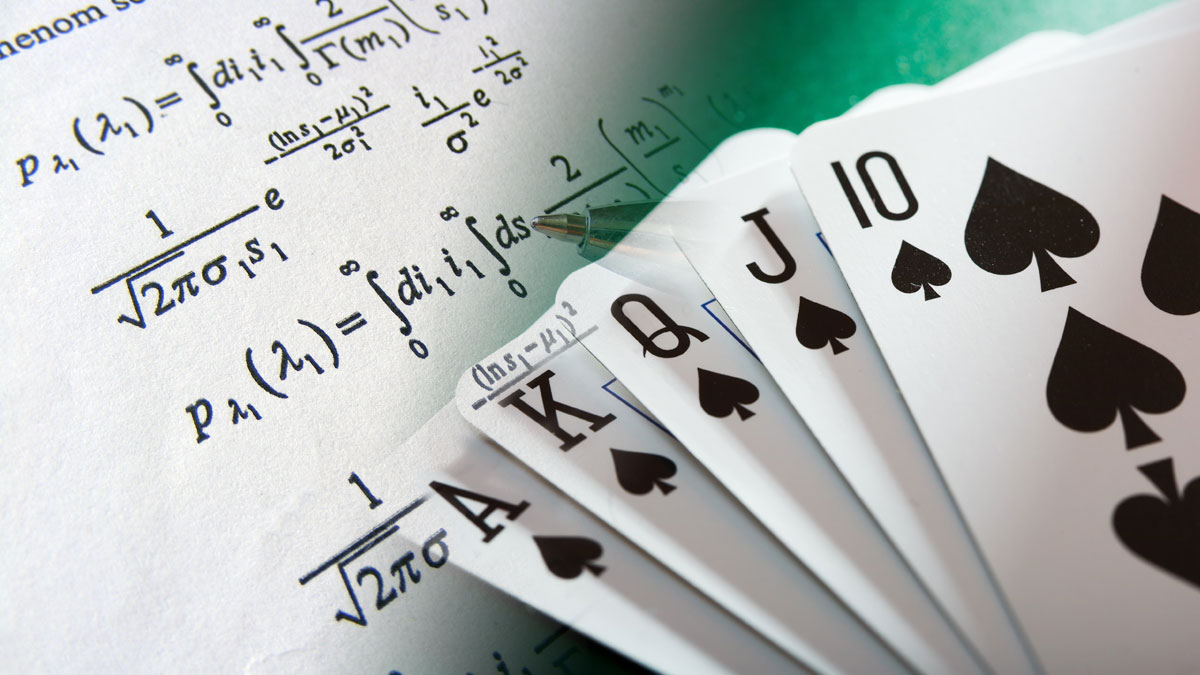Poker Theorems
In mathematics, a fundamental theorem is a theorem which is considered to be central and conceptually important for some topic. For example, the fundamental theorem of calculus gives the relationship between differential calculus and integral calculus. The Fundamental Theorem of Poker applies to all heads-up decisions, but it does not apply to all multi-way decisions. This is because each opponent of a player can make an incorrect decision, but the 'collective decision' of all the opponents works against the player. PokerMarket - Making Poker More EfficientFull Video here: https://pokermarket.com/marketplace.php#!/video/370/w34z3l/fundamental-theorems-of-poker-vid-2-valu. Common Poker Theorems The dictionary defines a theorem as “A general proposition not self-evident, but proved by a chain of reasoning. A truth established by means of accepted truths.” Over the years several poker theorems have been proposed by strong players and students of the game. Poker theorems are usually useful or interesting statements that are based on the poker strategy, which can help us to play a better game in specific situations. In other words, poker theorems tell us something like that: “if you are in X situation, then do X'.
Poker Theorems: aejones Baluga Clarkmeister Fundamental Yeti Zeebo
This is another specific theorem like the Baluga Whale theorem, and similarly it is not too difficult to grasp. The thoerem was initially put forward for limit Texas Hold'em games, but it works perfectly well in the no limit Texas Hold'em environment.
The Clarkmeister theorem states that:
“If you are heads up and first to act on the river, if the river card is the 4th card of a same suit you should bet”.
I can't find a reliable source for this theorem, but I'm confident that it stems from the 2+2 forums from a few years ago.
Why is the Clarkmeister theorem effective?
The Clarkmeister theorem works well because of the following reasons:
- The 4 cards of the same suit are going to scare many players.
- Therefore this creates a great opportunity to bluff on the river.
- A strong bet will often force any player without a flush or even a weak flush to fold.
If you put yourself in the shoes of a player that is facing a strong bet after that 4-flush card hits on the river, you can already feel yourself leaning toward folding anything less than a flush, along with weak flushes. Therefore you can see that this is a prime opportunity for a bluff for the player that is first to act, as you are going to fold the vast majority of your hands in this spot.

How to use Clarkmeister's theorem in Texas Hold'em.
To ensure that you get the most from the Clarkmeister theorem, make sure that you get the fundamentals sorted before attempting the bluff.
Poker Theory Gto
- You should be first to act on the river.
- You should be heads up against your opponent.
- You should make a strong bet – around ¾ the size of the pot at least.
If you are not first to act, it makes your bet a lot less convincing and so the bluff will be less effective. If your opponent checks to you and you bet, it makes it more obvious that you are trying to pull off a bluff. Therefore as the Clarkmeister theorem states you should bet when you are first to act.
The more players there are in the hand, the more likely it is that someone actually has a great hand. If you are heads up there is a greatly reduced risk of your opponent actually having a strong flush or better.
By making a strong bet, it puts your opponent to a very tough decision, and increases the chances that they are going to fold. If you make a weak bet, then you are pretty much giving your opponent good odds to call, and so your bluff attempt it going to be pretty poor. Show no fear and make a decent bet if you really want the Clarkmeister theorem to work.
Important point.
When you are using the Clarkmeister theorem, you are turning your hand into a bluff. Therefore you should not look to bet out if you want to try and extract as much money from the hand as you can, because with the Clarkmeister theorem you are looking to get your opponent to fold.
Similarly, if you have a hand like a weak flush at this stage in the hand, you will be best served check/calling as opposed to betting out. This is because you will only be forcing weaker hands to fold, which doesn't provide you with any value. This would be referred to as a way ahead / way behind situation, and so check/calling is better than bluffing.
Is the Clarkmeister theorem still effective?
Yes. It is not bullet proof like Zeebo's theorem, but I think it is on par with the Baluga theorem in terms of reliability.
Clarkmeister theorem overview.
Unlike the crazy aejones theorem and outdated Yeti theorem, the Clarkmeister theorem is a useful one that you should take note of. Unless you are coming up against experienced players who are aware of this theorem and can exploit other players who use it, you should find the Clarkmeister theorem to be profitable over the long run.
This theorem should work brilliantly against the weaker players, which means that you will be able to steal your fair share of pots with it. Be sure to use your knowledge of your opponent and the information from previous betting rounds to help you when deciding whether or not to make this play, as this will help with its overall success rate.
Poker Theory Pdf
Go back to the awesome Texas Hold'em Strategy.
Poker Theory Holdem
Comments